DSCC Creates New Tool to Improve Families’ Access to Available In-Home Nursing
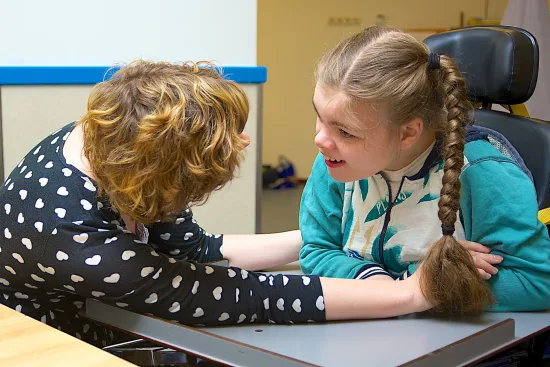
NurseNet helps Home Care Program families connect with nursing agencies to find available nurses in your area.
Finding in-home nurses can be challenging for many families caring for children and adults with complex medical needs.
We’ve created a new tool to help you find and connect with available nursing agencies in your area.
NurseNet aims to bridge the gap between Illinois families who need nursing and home health nursing agencies with available nurses.
Families of individuals enrolled in the Home Care Program can use NurseNet to share their nursing needs. Nursing agencies that are enrolled with the Division of Specialized Care for Children (DSCC) can share information about where nurses are available.
This information can help your family find suitable nursing care. It can also help nursing agencies identify opportunities to serve families.
Anyone can use NurseNet to search for general nursing opportunities across the state.
The search is set up for families and nursing agencies to find and share what they need easily. As a family enrolled in the Home Care Program, you can log in to NurseNet and enter your nursing needs.
Nursing agencies can see this information and contact your family within NurseNet if they have a potential nursing opportunity in your area that matches your child’s care needs. You can also use NurseNet to see where nursing opportunities are available throughout Illinois.
Nursing agencies enrolled with DSCC can log in to NurseNet and enter all areas of the state where they have nurses available. Nursing agencies can also see where families have nursing needs and connect with those families to provide nursing care.
Visit the NurseNet page on our website to learn about how NurseNet can help both families and nursing agencies. You can also find helpful videos and guides on how to use NurseNet.
We understand the search for in-home nursing can be frustrating and overwhelming. That’s why we created this tool to help you share your nursing needs and connect with nursing agencies with available nurses.
We are excited to offer this tool to help provide nursing connections to our participant families enrolled in the Home Care Program!
Announcing Rate Increases for In-Home Nurses

Increased rates for in-home nurses will take effect on Jan. 1, 2024.
We have an exciting update for our participants enrolled in the Home Care Program.
The Centers for Medicare and Medicaid have approved a rate increase for in-home nurses in the new year.
We hope this rate increase can help expand available and high-quality nursing options for our participant families.
This rate increase affects:
- Registered nurse (RN), licensed practical nurse (LPN) and certified nursing assistant (CNA) care
- In-home and facility-based respite care
- Nurse training rates
This increase will take effect Jan. 1, 2024. The rates are as follows:
- RN, $54 per hour
- LPN, $45 per hour
- CNA, $30 per hour
You can see the updated Home Health Fee Schedule on the Illinois Department of Healthcare and Family Services (HFS) website.
The following rate increases are for participants who are in the Home and Community-Based Services Waiver for Those Who Are Medically Fragile, Technology Dependent (MFTD):
- Nurse training for an RN, $54 per hour
- Nurse training for an LPN, $45 per hour
- In-home respite for an RN, $54 per hour
- In-home respite for an LPN, $45 per hour
- In-home respite for a CNA, $30 per hour
HFS will also increase the maximum amount for nurse training service hours from four to 32 hours per nurse per waiver year.
As a reminder, parents and legally responsible adults who have an RN or LPN license can be paid caregivers. (Parents and legally responsible adults who are CNAs cannot be paid caregivers at this time.)
HFS will increase your nursing resource allocation amounts to reflect the increase.
Your Division of Specialized Care for Children (DSCC) care coordination team can help you with any questions about the rate increase or nursing services.
You can also find more helpful information about Home Care Program services on our website’s Home Care Information Hub.
Permanent Home Care Program Changes Give Families More Flexibility and Support
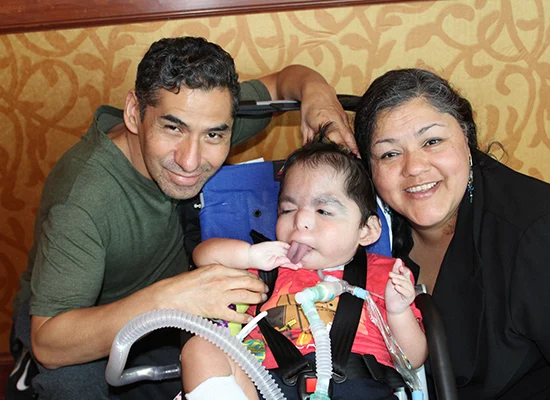
Paid licensed caregivers and nurse overtime are now permanent options for Home Care families
We have exciting news about long-term changes to the Home Care Program. We have listened to our participant families and made two pandemic-related benefits permanent. These changes can provide continued flexibility and support beyond the public health emergency.
When the COVID-19 pandemic began in March 2020, UIC’s Division of Specialized Care for Children (DSCC) partnered with the Illinois Department of Healthcare and Family Services (HFS) to address our Home Care families’ needs. Together, we set provisions included in Appendix K. Appendix K is an emergency coverage document for individuals receiving services through a Medicaid waiver.
We continued to partner with HFS to make two provisions permanent for Home Care participants. As a result, nurses can continue to provide overtime. Licensed parents/legally responsible adults (LRAs) can also remain paid nurse caregivers for their children enrolled in Home Care.
Below are more information and guidelines on these new permanent changes.
Licensed (RN or LPN) Parent/LRA Paid Caregivers
Parents or LRAs, including foster parents, can provide skilled nursing services to their children if they hold an active registered nurse (RN) or licensed practical nurse (LPN) license.
This approval includes participants enrolled in medically fragile, technology-dependent (MFTD) waiver services and non-waiver services. This approval is for all children approved for Home Care services, regardless of the child’s age.
Guidelines include:
- The licensed parent/LRA must be a nurse employee of a DSCC-approved nursing agency. The nursing agency sets the number of hours the parent can work each week.
- Services may begin on the licensed parent/LRA’s hire date.
- The licensed parent/LRA must meet all nursing agency rules for provider qualifications and training.
- The licensed parent/LRA can work overtime hours. Overtime is anything over 40 hours a week.
- The licensed parent/LRA must hold an active RN or LPN license.
- Licensed parents/LRAs may not provide respite services under the waiver.
- Licensed parents/LRAs cannot receive reimbursement for nurse training.
- The total nursing hours may not exceed the approved resource allocation.
Overtime
Nursing agencies will permanently receive payment for overtime hours to Home Care participants. Overtime hours benefit the participant and family. They also allow nurse caregivers to provide more nursing coverage to participants. The possibility of overtime also incentivizes the nurse caregiver to provide more coverage. Overtime allows nursing agencies to cover more authorized hours while stretching their staffing over fewer nurses. This is especially helpful to families during a time of increased demand for nurses.
Guidelines include:
- Under the Fair Labor Standards Act, overtime is anything over 40 hours a week.
- The Nurse Practice Act prohibits working more than 16 hours in a 24-hour period. An eight-hour break between shifts is also mandatory.
- Overtime is defined as time-and-a-half.
- Overtime reimbursement comes from the approved resource allocation. The amount billed cannot exceed the HFS-approved resource allocation.
- Those on the MFTD waiver cannot use overtime when using respite hours.
- Parents/LRAs who are nurse paid caregivers can work overtime. The parent/LRA is an employee of the nursing agency. The nursing agency determines the number of hours the parent can work each week. The number of hours cannot exceed the approved resource allocation.
- Nurses can only be eligible for overtime when Medicaid is the payer. When private insurance is the payer, nurses cannot receive overtime pay.
Please contact your DSCC Care Coordinator with any questions or concerns.
We hope these permanent changes will continue to benefit your family.
Share Your Feedback on the Nursing Allocation Process
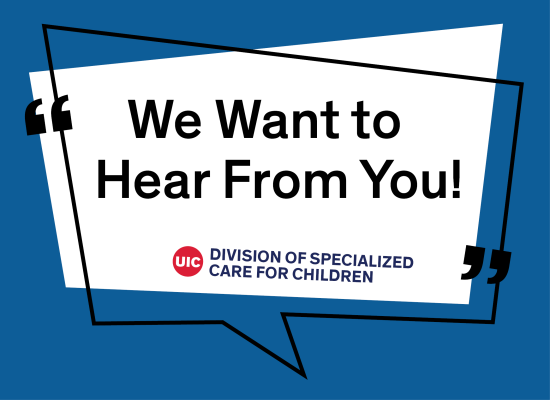
Help our Family Advisory Council recommend changes that can benefit Home Care Program participants and their families.
The Division of Specialized Care for Children (DSCC) helps coordinate and monitor in-home nursing for families through the Home Care Program.
The Illinois Department of Healthcare and Family Services (HFS) determines the number of approved nursing hours after reviewing the individual’s medical reports and medical needs.
Our Family Advisory Council (FAC) now wants to help families better understand the process for how HFS assigns nursing allocations. The FAC also wants to help HFS understand the unique needs and circumstances of Home Care families when deciding nursing allocations.
FAC Advocacy Chair Whitney Woodring is putting together a Nursing Allocation Workgroup to gather feedback on these issues. Whitney’s daughter Willa has received Home Care services since she was a baby. (See Willa’s Family Story for more details.)
Whitney hopes to speak with families across Illinois to learn about their experiences with nursing allocations and the appeal process.
You can email Whitney directly with feedback at w.woodring25@gmail.com.
Whitney would like to hear all input, including positive experiences with the process.
Your feedback will help Whitney and the FAC make recommendations for changes that can benefit as many participants as possible.
To learn more about the FAC, visit our Family Advisory Council page. Be sure to also join the FAC’s next open forum meeting on Nov. 10.
Need more information about nursing services and allocations?
Our Nursing Services Tip sheet gives an overview of Medicaid’s nursing services to help families in the Home Care Program take care of their child’s medical needs:
Our Home Care Appeal and Peer-to-Peer Review Tip Sheet explains how the review and determination of medical eligibility for Home Care services work:
- Appeal and Peer-to-Peer Review Tip Sheet in English
- Appeal and Peer-to-Peer Review Tip Sheet in Spanish
You can find these handouts and other helpful information for families on our Home Care Information Hub.
DSCC and State Health Department Partner to Improve In-Home Nursing Options for Families

A new licensure process for nursing agencies will help provide more options for children and adults in need of in-home nursing care
The nationwide nursing shortage has affected many Illinois families in need of in-home shift nursing care for their children with complex medical needs.
There is a constant demand for more in-home nursing care options in all parts of the state, both rural and urban.
The University of Illinois Chicago’s Division of Specialized Care for Children (DSCC) has partnered with the Illinois Department of Public Health (IDPH) to help meet this need and give families more nursing care options.
DSCC worked with IDPH to change how our enrolled nursing agencies are licensed to serve Illinois counties. Nursing agencies can now be licensed to serve all of Illinois instead of only individual counties.
This change should make it easier for nursing agencies to serve more parts of the state.
Before this change, nursing agencies could only operate within their approved service county area. Nursing agencies had to request approval for each county they wanted to serve.
This process made it difficult for nursing agencies to expand coverage to areas in need. Our participants who receive in-home shift nursing through the Home Care Program could only receive services from nursing agencies licensed for their specific county.
Now all nursing agencies who are licensed and enrolled with DSCC in good standing may serve all Home Care participants in any part of the state.
This broader statewide approach to nursing agency licenses will offer more available nursing options to our participant families.
Please note that each nursing agency must decide if it wants to expand its service area to other parts of the state. This decision is based on nursing staff availability.
We are thankful for IDPH’s partnership to help meet this important need for our participants and their families!
New Support Group and Workshop Series for Home Care Families
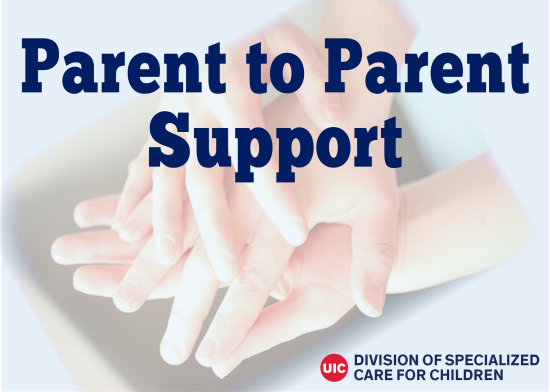
UPDATE: Please note this support group is now open to all families of children enrolled with the Division of Specialized Care for Children. See the latest support group news for more details.
The University of Illinois Chicago’s Division of Specialized Care for Children (DSCC) is partnering with UIC’s Leadership and Education in Neurodevelopmental and related Disabilities Program (IL LEND) to offer a support group for families enrolled in the Home Care Program.
The Home Care Program helps children and adults who require in-home nursing care. DSCC operates the Home Care Program on behalf of the Illinois Department of Healthcare and Family Services.
This support group will provide an online space for parents to access educational workshops and swap concerns, resources and strategies.
There is no cost for families to participate.
The group will meet on the third Wednesday of the month from November through April.
Workshops topics may include:
- Respite care
- Feeding
- Ventilator maintenance/cleaning
- Transportation
- Navigating relationships with Home Care staff
IL LEND would also like to hear families’ ideas for future support groups and workshop topics. You can share your feedback on this brief online form.
The support group schedule is for the following dates from 5:30 to 6:30 p.m.:
- Nov. 17
- Jan. 19
- Feb. 16
- March 16
- April 20
Here are details for the first session:
- WHAT: Virtual support group/workshop series for parents/caregivers of children and adults enrolled in the Home Care Program.
- WHEN: Nov. 17 from 5:30 to 6:30 p.m.
- TOPIC: Navigating the COVID-19 Pandemic (Note, the discussion portion of the support group will include a facilitator for Spanish-speaking families.)
- WHERE: Virtual via Zoom
- REGISTER: Please sign up online in advance. After registering, you will receive a confirmation email containing information about joining the workshop discussion via Zoom.
Tell Us About Your Home Nursing Experience

A brief survey for Home Care Program families will help us improve service and support
Attention all families in the Home Care Program! We want to know how well your family’s nursing agency is meeting your needs.
The University of Illinois Chicago’s Division of Specialized Care for Children (DSCC) team has put together a short, 10-question survey for families to complete.
We will not share your individual survey responses with anyone.
There is no requirement to share your name or your child’s/participant’s name. Entering this information is completely optional.
We will group your survey responses with those from other families to better understand how rate increases are affecting nurses working in the home.
Our ultimate goal is to improve the services and support available for DSCC participants with complex medical needs.
Please note this survey is only for families enrolled in the Home Care Program who receive in-home shift nursing services.
You can fill out the survey at https://uic.ca1.qualtrics.com/jfe/form/SV_85Pqs6nSdnHb7ds.
The survey is available in both English and Spanish.
The deadline to complete the survey is Oct. 19.
We appreciate your feedback and partnership!
Important Clarification on In-Home Supervisory Visits for Home Care Families
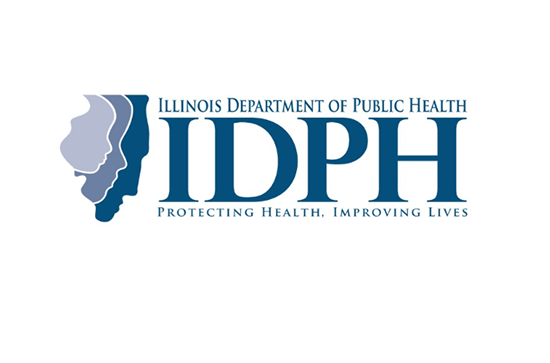
UPDATED: In-home nurse agency supervisory visits are still optional for most Home Care Program families
We have an important clarification to share about the status of home nursing agency supervisory visits.
A previous version of this post stated that home nurse agency supervisory visits must now resume in-person without exceptions for all Home Care Program participants. That information is no longer accurate.
We have received clarification from the Illinois Department of Public Health (IDPH). The department’s June 24 notice about required in-person supervisory visits only applies to home health aides (CNAs) providing care in the home. It does not apply to all nurses working in the home.
At this time, in-person supervisory visits are only required when:
- A CNA is providing care in the home.
- The parent/guardian is a licensed nurse and providing care as a paid caregiver in the home.
If your home nursing care does not fall in these categories, in-person supervisory visits are not required and remain optional. (Please note that DSCC still encourages nursing agencies to perform in-home supervisory visits when possible to ensure the health and safety of our participants.)
We apologize for the confusion!
The emergency amendments that suspended in-person supervisory visits during the pandemic are still in place.
If you have questions or additional concerns about the status of in-home supervisory visits, please contact your DSCC Care Coordinator.
Our DSCC Team will continue to prioritize the health of your child and family and work with our state partners to provide guidance and support.
Once again, we regret any confusion and are happy to help answer any questions and address your concerns.
Thank you for your understanding.


